From soccer stadiums to tech networks, Chinese industry plays role in Brazil
Updated: 2015-05-20 10:52
By LIA ZHU in BRASILIA JOURNAL(chinadaily.com.cn)
|
||||||||
Fabianonery does not speak English, but upon hearing the word China mentioned, he gave a thumbs-up.
The photographer was working on Tuesday with the athletics department of the Brasilia government to take promotional photos of the National Stadium.
The football stadium, with a capacity of 72,800 after reconstruction from 2010 to 2013, was one of the venues for the 2014 World Cup. It also has become a landmark of the Brazilian capital and a tourist attraction.
Fabianonery, speaking through an interpreter, wasn't aware of the role that China played in the construction of the stadium. In fact, Chinese cranes could be found at construction sites at National Stadium and 11 other stadiums around the country.
Sany Group, a Chinese multinational heavy machinery-manufacturing company, started exploring the emerging Brazilian market in 2007, said Alex Xiao, chief risk officer for Sany Brazil.
Since Sany established a manufacturing factory in Sao Paulo in 2011, around 2,600 of its cranes have been manufactured and sold in Brazil, according to Xiao.
"The output is about 500 units a year, and our equipment has been used in infrastructure construction like stadium and railroads," he said.
As a member of the Chinese delegation, he was about to leave his hotel in Brasilia to attend a meeting between visiting Chinese Premier Li Keqiang and Brazilian President Dilma Rousseff on Tuesday at the president's residence.
"We are enthusiastic about the transoceanic railway," he said, referring to a transcontinental South American railway project to link Brazil on the Atlantic coast with Peru on the Pacific coast, which is expected to cut transportation costs of Brazilian goods to China.
During Tuesday's meeting, the two leaders also witnessed the signing of agreements between Chinese and Brazilian companies, among which three deals were signed by Huawei Brazil, a Sao Paulo-based branch of the Chinese tech giant.
The company signed an agreement with leading carrier Vivo to upgrade the 4G network for Rio de Janeiro to better prepare for next year's Games. Huawei also struck a deal with carrier Tim to set up a research and development center center committed to Wi-Fi and broadband technologies.
Under an agreement with an education agency affiliated with the Ministry of Education, Huawei Brazil will provide training assistance to university students majoring in information and communications technology, according to Gavin Yang, executive director of public relations with the company.
"Brazil has been an important market with its huge population since Huawei started its operation here 16 years ago," said Yang, who attended the meeting at the president's residence.
He said the market was expected to continue growing with the impetus from both Chinese and Brazilian governments.
"Now we have around 3,000 employees, and 81 percent of them are locals," he said.
"We have noticed more frequent high-level exchanges between the two sides in recent years, and we also have the feeling that both the governments are willing to deepen cooperation for their people and companies," he said.
Contact the writer at liazhu@chinadailyusa.com
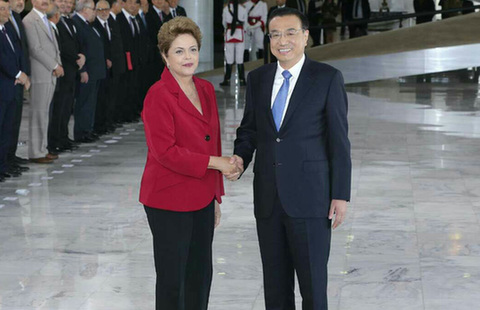
 Premier Li Keqiang welcomed by Brazilian president
Premier Li Keqiang welcomed by Brazilian president
 Weirdest towns in the world
Weirdest towns in the world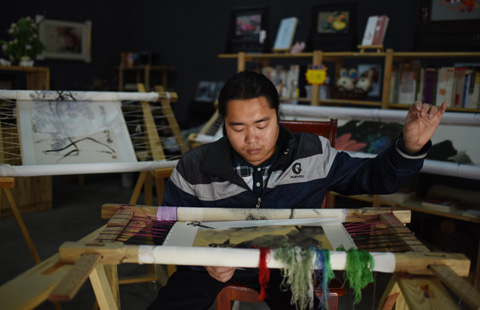
 Students from vocational schools also make big bucks
Students from vocational schools also make big bucks
 Ten photos you don't wanna miss - May 19
Ten photos you don't wanna miss - May 19
 Royal family adds color to Chelsea Flower Show
Royal family adds color to Chelsea Flower Show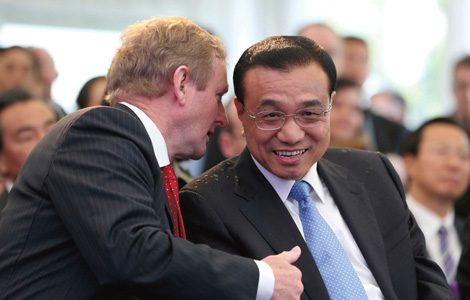
 Premier takes in Irish countryside at old farm
Premier takes in Irish countryside at old farm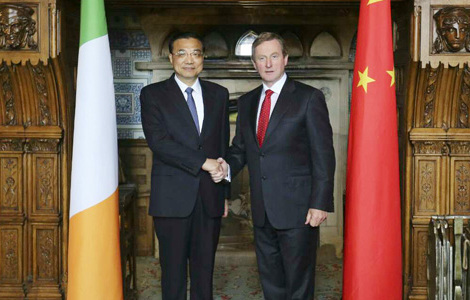
 China, Ireland sign agricultural deals
China, Ireland sign agricultural deals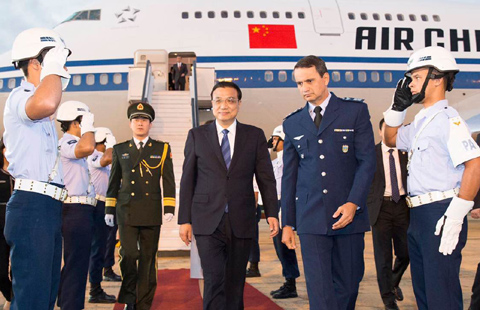
 Premier Li arrives in Brazil to start official visit
Premier Li arrives in Brazil to start official visit
Most Viewed
Editor's Picks

|

|

|

|

|

|
Today's Top News
Brazil embraces third wave of Chinese investment
Taoist teaches US official one or two things about feng shui
White House bans police from using certain military equipment
China eyes 'capacity exports' to sustain growth
Vietnam's objection to fishing ban in South China Sea dismissed
Li arrives in Brasilia to start LatAm tour
In Brazil's capital, young weigh what China offers
Li samples products of an Irish farm
US Weekly

|

|






